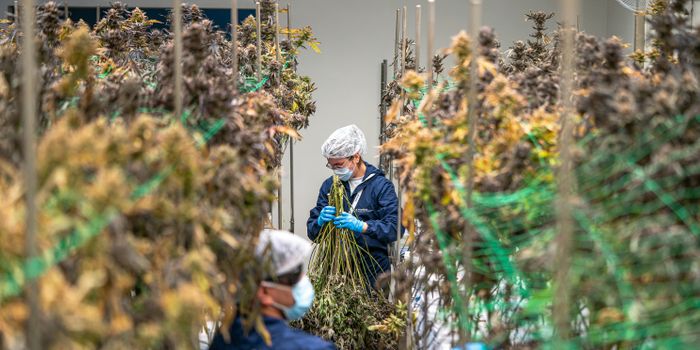Coffee's Effects on Our Endocannabinoid System
Daily consumption of caffeine is seen as a "normal" addiction, er, habit. It doesn't seem to pose any deleterious health effects, and, tolerance and withdrawal aside, many people can stay on a daily "maintenance dose" of coffee without any adverse consequences. That common perception, however, may be challenged based on data suggesting that caffeine can affect our newly discovered physiological system: the endocannabinoid system (ECS).
Photo source: Unsplash.com
A study published in the Journal of Internal Medicine last year by Dr. Marilyn C. Cornelis and colleagues of Northwestern University studied the metabolome (a profile of metabolites) of 47 habitual coffee consumers across 3 months. For the first month, the study participants were to abstain for coffee (that must have been painful). In the second month, the participants were instructed to drink four cups a day and in the third month, they had to drink eight cups a day. Scientists measured the level of different metabolites in the participants' fasting serum at each month.
The researchers found a total of 115 metabolites associated with coffee intake. These metabolites tend to be associated with a particular biological pathway. The scientists mapped the metabolites to 33 known pathways. Eighty-two of the 115 metabolites found had already been identified. Researchers observed a significant increase of metabolites related to 5 specific pathways: xanthine metabolism; benzoate metabolism; steroid metabolism; fatty acid metabolism and endocannabinoid metabolism.
These metabolites could be traced back to their sources (for example, xanthine metabolism produces caffeine metabolites). Some were previously unknown to be related to coffee metabolism. For instance, it had not been previously reported that fatty acid metabolism was involved in coffee metabolism. What was especially surprising was the finding of metabolites related to the ECS. What would the ECS have to do with coffee? And what does it mean for the ECS?
Photo source: Unsplash.com
Metabolites related to the ECS decreased in response to coffee consumption. This is despite the fact that caffeine has not been shown to activate common endocannabinoid receptors (CB1 and CB2). However, that fact does not preclude the observed reduction in metabolites related to the ECS. One thing to keep in mind, though, is that there is something else that decreases ECS function: chronic stress. What does this have to do with coffee?
Caffeine can induce a stress response in some individuals. The ECS is thought to maintain several biological and psychological processes, and stress is one of them. Prolonged stress can decrease the function of the ECS. So, is there a coffee-stress-ECS connection? This is probably an overly simplistic interpretation of the data. In fact, stress appears to have a bidirectional effect on the production of certain endocannabinoids. Stress can increase the production of the endocannabinoid anandamide but decrease the production of 2-arachidonoyl glycerol (2-AG).
The "why" and the "how" of the decrease in ECS-related metabolites are not yet understood. The authors concede that this is merely an observation, or a starting point, if you will, for further research. At most, they suggest that the reduction of coffee metabolites processed by the ECS may be due to a desensitization of the ECS to coffee. Furthermore, this does not address the effects of phytocannabinoids, such as CBD or THC, may have in combination with caffeine intake. So, until that data comes out, maybe order a grande instead of a venti?
Source: Critical Reviews in Food Science and Nutrition, Journal of Internal Medicine, Drug Discovery Today, Neuropsychopharmacology, Journal of Caffeine Research, Nature Reviews: Neuroscience,










